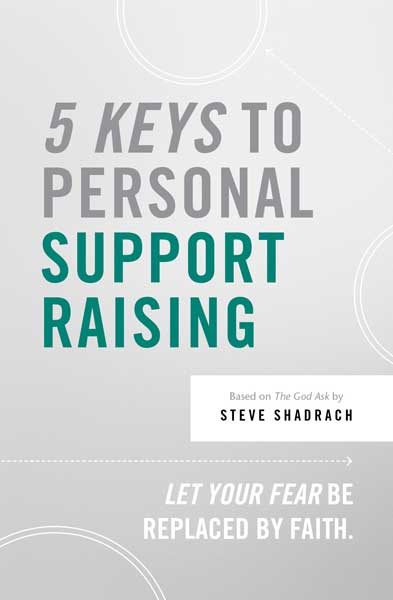I keep bumping into people and circumstances that remind me of this greatly overlooked and misunderstood critical piece in the support raising “puzzle”. I’m talking about thankfulness.
Without growing in our understanding and discipline of expressing thanks to donors, we will not have the support we need, both in prayer and finances. If we handle the little things well, Jesus will entrust to us more (Matthew 25). This applies to how we handle donations to our ministry. If we’re faithful with the little things, like a simple thank you to our donors, more will be given to us. If we are not faithful, we’ll miss out on so much.
Recently, I was in a friend’s kitchen where she had a beautiful plaque with words by Brother David Steindl-Rast that read: “It is not joy that makes us grateful. It is gratitude that makes us joyful.” This stirred me to again reflect on the significance of having grateful hearts, and expressing thankfulness to those for whom it is due.
Giving thanks is a universal relational principle. It is the right response to the Lord—as well as to people—when we receive provision. Each Sunday morning, part of my church’s liturgy includes “It is right to give thanks and praise (to the Lord)…” This simple, reasonable act, if not done, will seriously damage our support raising endeavors. It plays a big role in “handling well the little things…”
Expressing thanks is essential as we begin our support raising and ongoing support maintenance. A first-time gift from someone will likely be the only gift if the donor hasn’t received an expression of gratitude. Without this, a donor may wonder, “Did they get it?” “Did they appreciate it?” Did it make a difference?” If these questions go unanswered, then further giving is likely to be stopped in its tracks. Why do we fail in this? We get busy, we forget, or we’re distracted with the demands of our “ministry”. But expressing thanks is truly an integral part of our ministry.
Even I struggle with this practice and discipline, although I understand its significance more than most. In fact, I am remembering right now that I need to write two thank you notes for recent gifts which were above and beyond the normal. And yes, I hand wrote them before I completed this article so that I can, with clear conscience, hopefully encourage you!
In 2 Corinthians 8 Paul describes the amazing generosity of the Macedonian churches when the grace of God is at work. He then challenges the Corinthian believers, “But just as you excel in everything – in faith, in speech, in knowledge…in your love for us—see that you also excel in this grace of giving.” Part of our “generosity” towards donors is our taking the time and thoughtfulness to express thanks to them—especially with a hand-written note.
My favorite quote from my Friend Raising – Building a Missionary Support Team That Lasts book, was written by a dear friend and long-term supporter: “I stand on the shoulders of those who cannot see the landscape I describe. I owe them far more than my weight.” Doesn’t that say it beautifully? It’s an honor, privilege and obligation to “describe the landscape” we’re allowed to see in our ministry because of the sacrifice of our supporters. At the bare minimum we owe them a heartfelt expression of thanks along with sharing the “good news” of the ultimate effect of their gifts on people’s lives. What is the fruit of your labor in ministry you can tell your donors about? Here’s an example:
Bill Gates Sr., co-chair of Bill & Melinda Gates Foundation, encouraged me in his book, Showing Up for Life–Thoughts on the Gifts of a Lifetime. In his chapter, “An Expression of Gratitude”, he writes about speaking before thousands of Microsoft employees, most of whom were twenty somethings. As the father of the famous Microsoft founder Bill Gates, Jr., he began his speech with, “Without me, you wouldn’t be here.” Yes, they laughed, but Gates, Sr. wrote why he started with that line: “I might have even summoned forth some feelings of gratitude. And that was exactly the point. I was helping kick off their United Way campaign and I wanted to inspire them to be as generous as possible.” The elder Gates then told the employees about the time he took some United Way volunteer leaders to visit an agency they supported, where those with mental illness were helped in practical ways. As the volunteers met with various residents, one woman described the ugly life she had led caused by her mental health problems. She shared how the agency helped her get a job and was now rebuilding her life. She had actually taken time off her job without pay that day in order to thank the visiting United Way volunteers. “She wanted to thank us and let us know that, without us, she wouldn’t be in the whole new place in her life…” Gates, Sr. ends his chapter with, “That young woman’s story helped kick-start a record-breaking United Way campaign undertaken by that room full of young Microsoft people who were inspired by her expression of gratitude.”
May the Lord help each of us develop an attitude of gratitude, expressed in thoughtful, personal ways!

